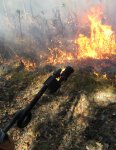Danuwoa
Redneck Emperor
Man hunt how you want to. You should. But other people can do the same.Fellows, I don’t mean competitive like “I’m better than you”. I mean competitive like there’s a flock between us and I make sure I’m at least as good at turning them into nuggets as you are. I personally don’t offer much instruction, so as to be “competitive”. Another term that may have been in better taste is “relevant”. If you aren’t changing and improving constantly, you can quickly get yourself into the “not enough turkeys” crowd.

